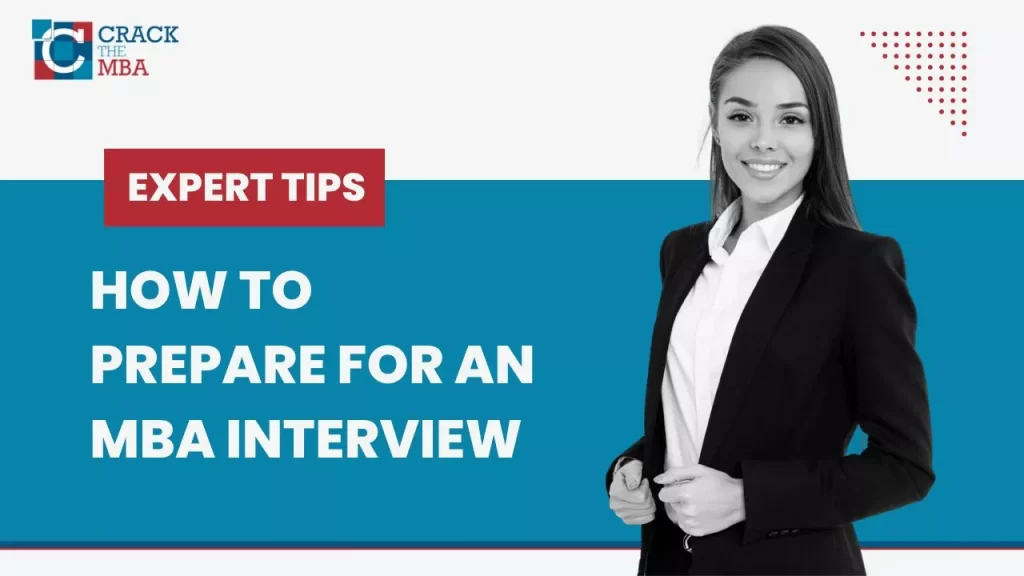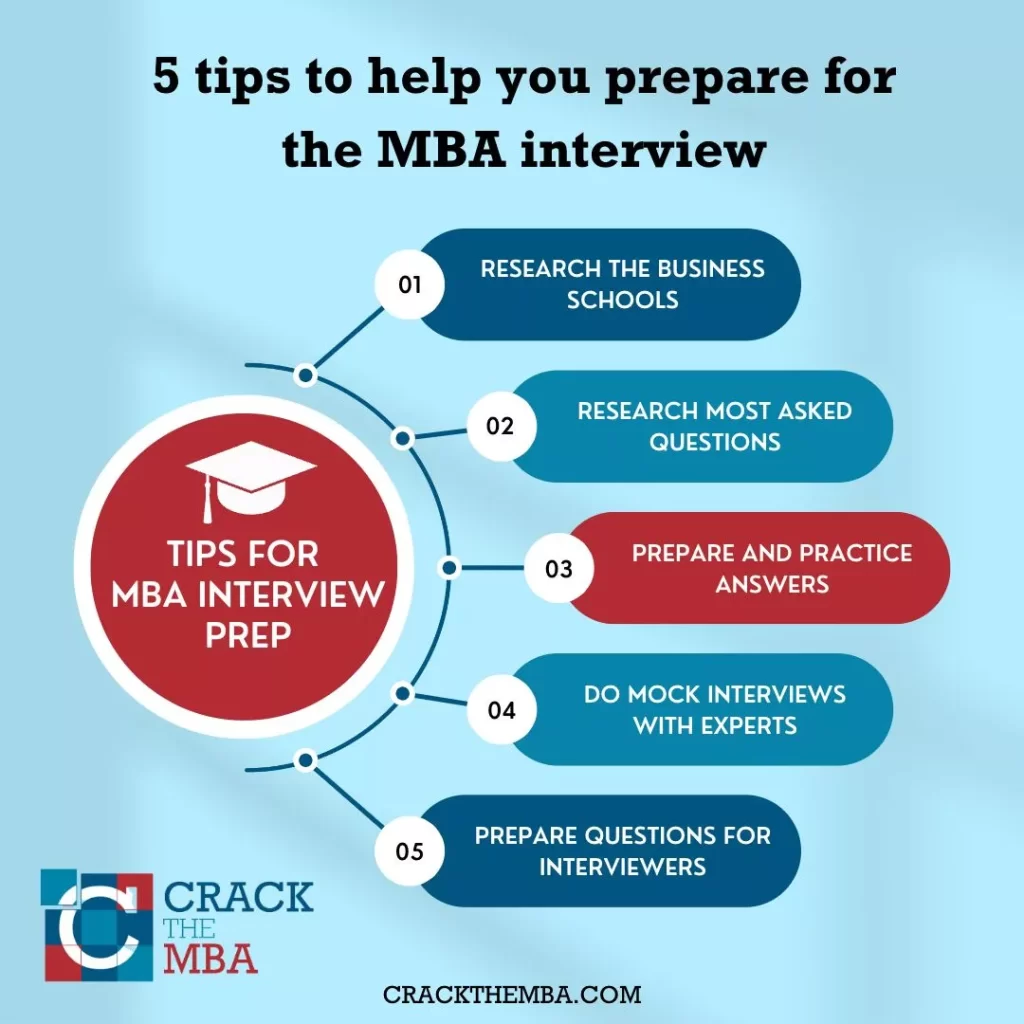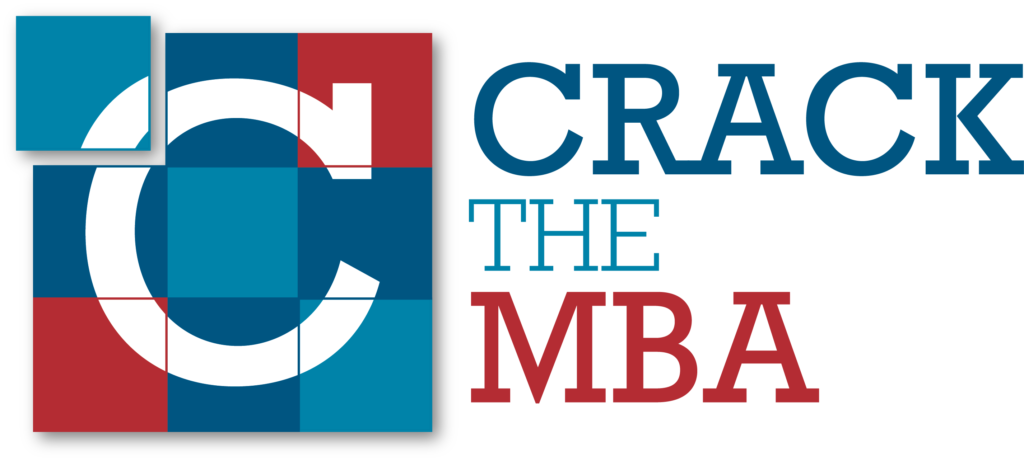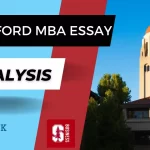MBA Interview – How to prepare, expert tips, and types
The most crucial and final step in your MBA admissions journey is your interview. This is where the MBA admissions committee would dig deeper into various aspects of your application like your stories, work experience, essays, etc. They want to know if you have what it takes to not only ‘get in’, but also ‘get through’ their rigorous MBA program. Therefore, it is very important to know the contents of your application inside-out. So, how does one prepare for and ace the MBA interview?

In this article, we will provide expert tips on how you can crack the interview stage to crack the MBA admissions process.
What is the purpose of an interview?
Getting an interview invite is usually a good sign that conveys that the school thinks you have what it takes to become a part of their community. The main goal of the MBA interview is to help the school learn more about you and how you think. It is also a tool for schools to confirm the credibility of whatever you wrote in your application.
The process for getting in is very competitive. Every year, there are thousands of qualified applicants, and many of them have excellent credentials and impressive experiences. The interview is a great way for business schools to narrow down the pool from a large number of applicants, find out you are who you say you are, and if you have what it takes to finish an MBA.
The interview is a chance not just for the school to evaluate you, but also for you as a candidate to evaluate fit. In other words, you can show that you are a good fit for a school and determine if the school is a good fit for you.
Interviews are an important part of getting into MBA programs and should be taken seriously. Before we talk about how you can start preparing for your MBA interview, let’s talk about the different types of interviews that you can expect.
Type of MBA interviews
Blind Interviews
Some schools, such as Columbia Business School and Yale School of Management, conduct “blind” interviews. Other than what is on your resume, your interviewer will know almost nothing about you before sitting down to meet you in a blind interview.
Blind interviews enable the interviewer to provide an unbiased evaluation of the candidate in question. One of the primary advantages of this form of interview is that it provides candidates with a nearly blank slate; the interviewer is unaffected by your academic background, GMAT or GRE scores, reference letters, and so on.
As a result, the discourse in a blind interview will most likely be centered on the experiences expressed in your resume. Schools that use blind interviews tend to draw from a bigger pool of interviewers, which may include alumni or even second-year students.
Non-Blind Interviews
Non-blind interviews are preferred by schools such as Harvard Business School, MIT Sloan School of Management, and London Business School. Here, the interviewer has the opportunity to study the candidate’s whole application before sitting down with them prior to the interview.
A conversation with a non-blind interviewer, who is generally a member of the admissions committee, is more in-depth because the questions are geared directly toward you and your application. The bulk of questions are very specific, designed to reveal your personality, demonstrate your communication or leadership abilities, and elicit the rationale for your career aspirations and interest in your school’s MBA program. Moreover, given you would have already expressed much about yourself in the application, such interviews require deeper preparation for you to be able to add value to your candidacy.
London Business School has an interesting non-blind interview process. There are 2 stages in the interview – A video interview and an alumni interview. During its alum interview, London Business School asks interviewees to make impromptu presentations. You will have about five or ten minutes to get ready and five minutes to make the presentation.
Group Interviews
Group or team-based interviews are another popular form of interviews held by top business schools such as Wharton and Michigan Ross. Candidates participate in group discussions and exercises to simulate a team-based learning experience. These interviews assess not just your problem-solving capabilities, but also your collaboration and communication skills.
Wharton, in its official communication, says that “The TBD [team-based discussion] is one element of the admissions process that, when pieced together with your written application, helps to paint a clearer picture of who you are and how you would fit into the class. Our hope is that through a team-based discussion, you will not only be able to present how you approach and think about certain challenges and opportunities but that you will also have a chance to experience, firsthand, the teamwork and learning dynamic that is central to our program.”
Pre & Post Interview Reflections
Apart from these interview types, a few business schools ask you to share your pre- and post-interview essays or reflections.
For candidates that it has been inviting to interview, MIT Sloan has been asking for answers to two short essay questions, including one that has a data analytics component. These are to be uploaded at least 24 hours before the interviews. The questions to be answered are sent with the invitation to the interview.
Harvard Business School asks applicants to send in a post-interview reflection within 24 hours. The question allows candidates to have the final word, as they respond to the query, “How well did we get to know you?” Even though there is no word limit, this reflection should not be a long essay. Instead, it should be short, to the point, and written like an email.
During its alum interview, London Business School asks interviewees to make impromptu presentations. You will have about five or ten minutes to get ready and five minutes to make the presentation.
The point of this task is not to get the “right” answer, but to see if you can explain your ideas well and show that you can think critically.
Let’s talk about what are the top 5 qualities MBA adcoms are looking for during interviews.
Do you want to impress the MBA Interview panel?
At Crack The MBA, we have helped hundreds of students get into top MBA programs around the world. We would be happy to help you too. Schedule a consultation with us today to learn more about how we can help you get into your dream school.
Top 5 things that admissions committees for MBA programs look for in interviews
5 qualities admissions committees look out for during MBA interviews are:
- Clarity of goals
- Fit with the school
- Potential to contribute to the MBA community
- Leadership and teamwork
- Analytical skills
Let’s discuss them in a little detail.
Clarity of goals
MBA programs look for students who have a clear idea of what they want to do with their lives. Be ready to talk about why you want to get an MBA and what you want to do after you graduate. Admissions committees want to know what you want to get out of an MBA program and how your goals fit with the school’s mission. Be ready to talk about your short-term and long-term goals, as well as how getting an MBA will help you reach them. MBA applicants should spend copious amounts of time learning about the school before the interview and be able to explain why the program would best enable them to achieve their career goals. Here, speaking to members of the community can be especially useful in learning about resources that can help you demonstrate you’ve done your research.
Fit with the school
MBA applicants should learn about the school’s culture before the interview and be able to explain why they are a good fit for that culture.
Potential to contribute to the MBA community
As an MBA applicant, you should show that you would be active both inside and outside the classroom. Furthermore, contributions are not restricted to your time as a student. Schools care deeply about your contributions throughout your lifetime, even as an alum. Therefore, the more active you are in your communities pre-MBA, the more schools will be confident that you would be an engaged alum even post-MBA.
Leadership and teamwork
Most MBA programs place substantial weight on leadership and teamwork. Admissions committees want to see through your interview that you have the skills to lead and contribute to teams. Be ready to talk about a time when you led a team and what you learned from the experience.
Analytical Skills
MBA aspirants are expected to be able to solve complex problems and think critically. Therefore, you want to prepare specific examples of how you have used data and analysis through your career to make decisions.
How to prepare for the MBA interview
Now that you know what qualities adcoms look for during interviews, you’ll want to spend a lot of time preparing for the interview to make sure you leave a good impression.

Research the business school
Spend lots of time learning about the business school you are interviewing for. Every school has a set of values, and a mission, that they ascribe to. If the program’s mission and values match your own and your goals, you are more likely to get the most out of it.
Research the professors, instructors, and leaders in the program as you can leverage that information to convey fit between the school’s offerings and your requirements.
In the case of alum interviews, it can be helpful to know who will be interviewing you (if this information is available). Through a simple LinkedIn search, you can learn a lot about your interviewer. For example, what does the interviewer do for a living? What industries have they worked in? What are their most important achievements? This can help you predict some of the questions and find common ground to form a connection during the interview.
Research the various majors and electives in the school curriculum that will help you achieve your career goals. For example, if you want a career in Business Analytics then look out for core courses in Business Analytics offered by your target school. Here, conversations with current students with similar interests can help you discover courses that may not be listed on the website. This can further help you showcase your passion and research for the program.
In the end, the primary purpose for most MBA students is to get a job that boosts their career. Certain schools and programs offer more opportunities for internships and interfacing with industry. If that’s important for you, be sure to bring that up. For example, Columbia Business School offers the opportunity of in-semester internships and master classes, along with a plethora of other opportunities uniquely available as a result of its New York location. For some students, the location makes CBS the best choice.
What about the way the students live? Even if you won’t be living on campus while getting your MBA, campus culture is important. The other students affect your learning experience almost as much as the faculty does. Is there some aspect of student life that is particularly special about the program? If yes, bring that up. For example, Tuck is uniquely located in Hanover – a small town with a population of about 10,000. As a result of its remote location, Tuck is possibly the only business school that offers students the opportunity to bond much more closely with professors. Is that something you care about? If so, convey that to the interviewer. And as you do so, don’t forget to convey the ‘why’.
Research the most-asked MBA interview questions
The goal of an interview is to learn more about you, how you fit into your chosen field, and why you want to get your MBA from the particular program. It is very important that you know how to answer MBA interview questions.
A few common MBA interview questions are:
- Walk me through your resume.
- Why would you like to get an MBA now?
- What are your short-term and long-term goals?
- Why did you pick our business program or school?
- How would you contribute to our community?
- What other programs have you applied to?
- What are your strengths?
- What are your weaknesses?
- Tell us about a time when you led a team.
- Tell me about your greatest career success.
- Tell me about a time when you failed.
- Do you have any questions for me?
Do you want to impress the MBA Interview panel?
At Crack The MBA, we have helped hundreds of students get into top MBA programs around the world. We would be happy to help you too. Schedule a consultation with us today to learn more about how we can help you get into your dream school.
Prepare answers
Knowing what questions might, or will, come up is a good start, but not the end. Think of answers to the most common questions, work on them until you feel good about them, and then practice (practice, practice!) giving those answers. Record yourself answering these practice questions and rate your performance. Practice until you are convinced of your performance.
Use Mock Interviews to practice
An MBA mock interview is the best way to get ready for your real interview. Imagine a group of actors doing a dress rehearsal for a show. Before letting the audience in for the real thing, they run it through and fix any mistakes or hiccups. They also plan for any problems that could happen on the day of the event. You should practice the same approach while preparing for your MBA interview.
Mock interviews are run by experts and give you a chance to practice your communication skills and how to act in an interview. You also get to practice your answers in a realistic simulation of your interview format. You can improve your interview skills and behavior by getting feedback from people who work in admissions consulting like Crack The MBA.
We offer interview prep as a standalone service to applicants interested in putting their best foot forward in their MBA applications. We are well-versed in the interview techniques and styles of top schools be it Harvard, Stanford, Wharton, LBS, and more. We are able to guide you on all aspects including strategic inputs, presentation, tonality, expressions, body language, and more. Email us to learn about our interview services. Contact us here.
Prepare questions to ask the interviewer
Almost always, you are given a chance to ask your own questions. If you ask nuanced questions, it sends the message that you are committed to becoming a part of the community.
Here are a few questions to get you started with your brainstorming:
- Can you tell me something about your program that I can’t know just from your website?
- How accessible or approachable are professors?
- What are the common traits of the most successful students who have been a part of the program?
- Since I am interested in the same career path as you, can you share how the resources at the school helped you achieve your goals?
Most people get nervous before an interview, especially one as important as an interview for an MBA program. Mock interviews will take away the “unknown” factor, so you can go into your real interview with full confidence.
Final Thoughts
The MBA interview is your last chance to promote yourself as an ideal candidate for the program. It gives you a chance to differentiate yourself from the other applicants and leave an indelible impression on the interviewers by doing so.
No matter how well prepared you are for an interview, once it’s done, it’s over.
Therefore, prepare well.






